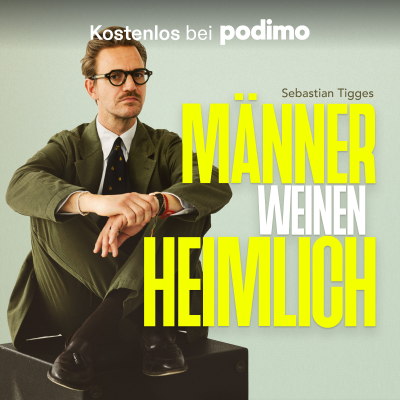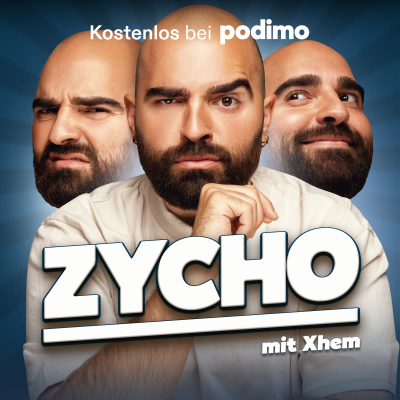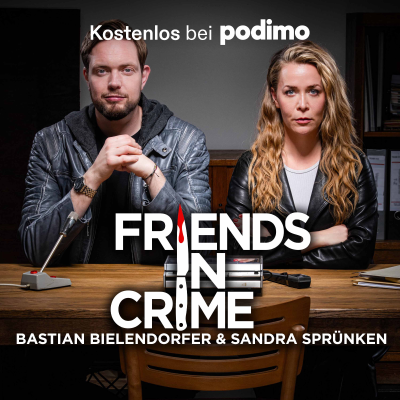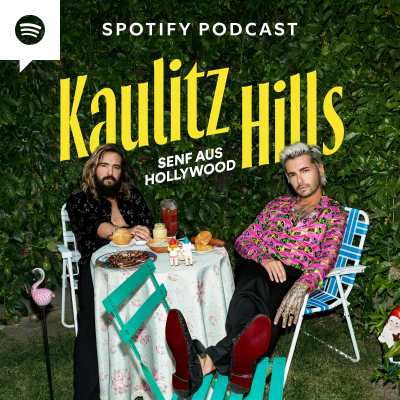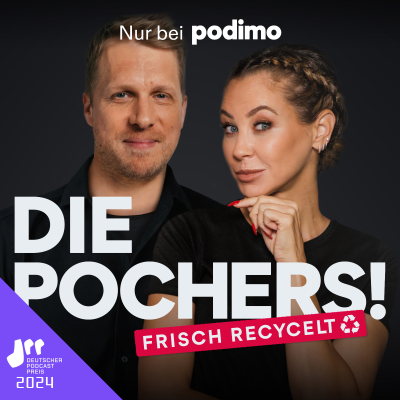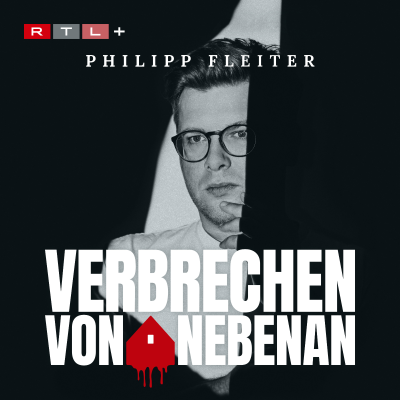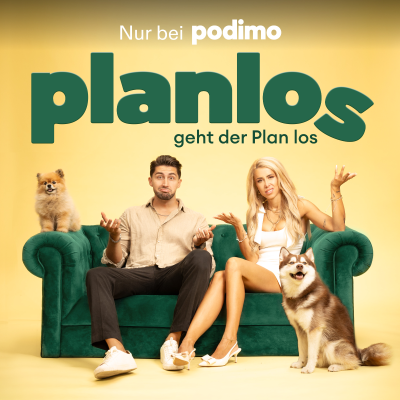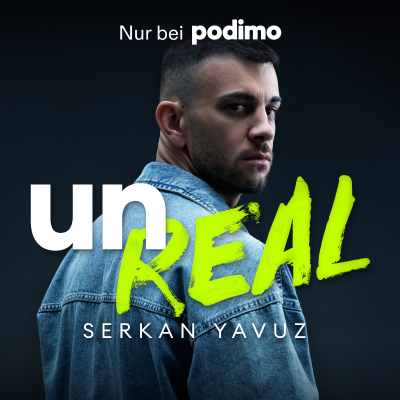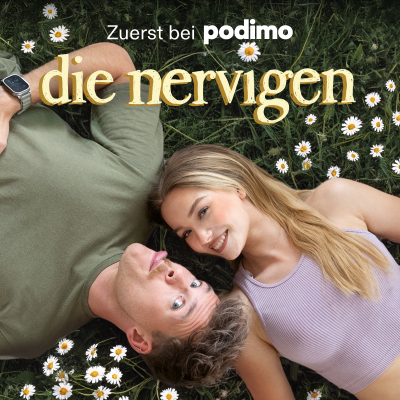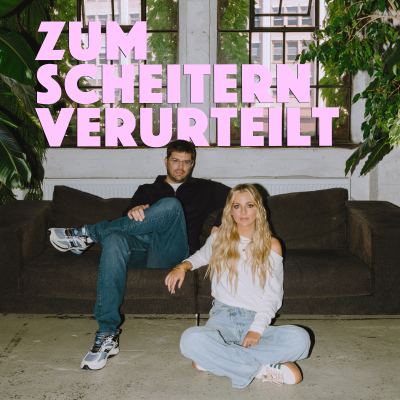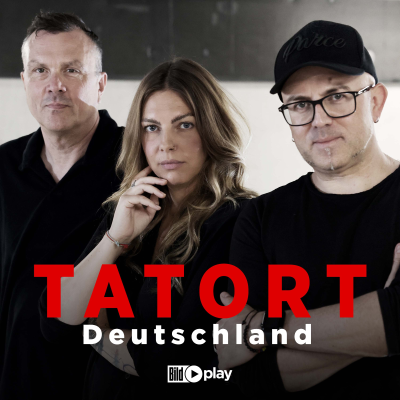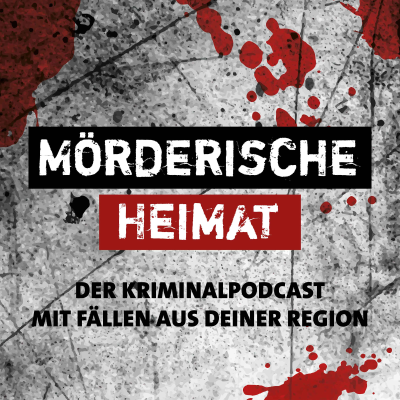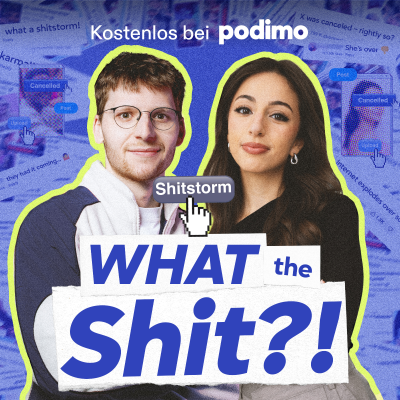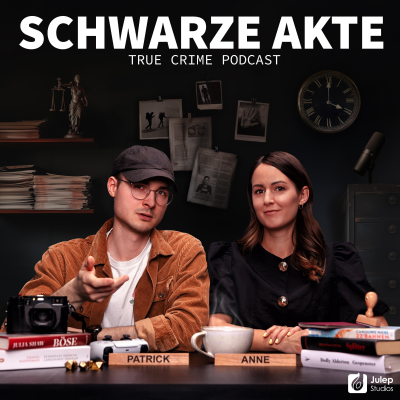
Superclusters - The Emerging LP Podcast
Podcast von Superclusters by David Zhou
Nimm diesen Podcast mit
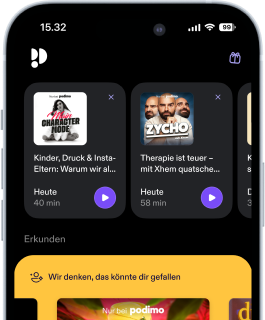
Mehr als 1 Million Hörer*innen
Du wirst Podimo lieben und damit bist du nicht allein
Mit 4,7 Sternen im App Store bewertet
Alle Folgen
59 FolgenKelli Fontaine from Cendana Capital joins David on El Pack to answer your questions on how to build a venture capital fund. We bring on three GPs at VC funds to ask three different questions. The Council's Amber Illig asked what happens when a solo GP is incapacitated or passes away. Oceans Ventures' Steven Rosenblatt asked why most LPs follow the decision-making of other LPs. NeuCo Academy's Jonathan Ting asked what LPs think about GPs asking for help. From investing in great fund managers to data to investor relations, Kelli Fontaine is a partner at Cendana Capital, a fund of funds who’s solely focused on the best pre-seed and seed funds with over 2 billion under management and includes the likes of Forerunner, Founder Collective, Lerer Hippeau, Uncork, Susa Ventures and more. Kelli comes from the world of data, and has been a founder, marketing expert, and an advisor to founders since 2010. You can find Kelli on her socials here: X/Twitter: https://x.com/kells_bells [https://x.com/kells_bells] LinkedIn: https://www.linkedin.com/in/kellitrent/ [https://www.linkedin.com/in/kellitrent/] And huge thanks to Amber, Steven, and Jonathan for joining us on the show! OUTLINE: [00:00] Intro[01:26] Kelli's new data discoveries[04:32] How did Kelli underwrite a manager with no LinkedIn?[06:19] Is too much data ever a problem?[08:18] Vintage year benchmarking[09:49] Telltale signs on GPs' social profiles[10:57] Data Kelli wishes she could collect[15:59] Enter Amber and her new podcast[18:08] Amber's background and The Council[19:08] How does Amber define top companies?[24:25] How can a solo GP set the firm up well in case they're no longer there?[26:11] Kelli's number one fear with solo GPs[28:30] Best practices for generational transfers[32:28] Solo GPs and their future plans[36:51] Enter Steven and Oceans[42:38] Would Kelli ever include AI summaries as part of the get-to-know-someone phase?[44:18] Why do LPs follow other LP's decision-making?[48:43] What are the traits of an LP who is likely to have independent thinking?[51:16] Why don't LPs talk directly with founders?[57:59] Enter Jonathan and NeuCo Academy[1:00:05] Is Kelli seeing more secondaries firms?[1:01:56] How often should GPs lean on LPs for help?[1:07:22] Are most LPs helpful?[1:12:21] What kinds of questions does Kelli get from her own GPs?[1:15:39] Kelli's last piece of advice Follow David Zhou for more Superclusters content:For podcast show notes: https://cupofzhou.com/superclusters [https://cupofzhou.com/superclusters]Follow David Zhou's blog: https://cupofzhou.com [https://cupofzhou.com]Follow Superclusters on X: https://x.com/SuperclustersLP [https://x.com/SuperclustersLP]
“19% of our GDP attracts about 55% of capital inflows, aka venture activity, and 81% is underinvested.” – Vijen Patel Vijen Patel is an entrepreneur and investor. He founded The 81 Collection, a high growth equity firm in boring industries. Previously, he founded what is now known as Tide Cleaners. He bootstrapped what eventually became the largest dry cleaner in the country (1,200 locations) before selling to Procter & Gamble in 2018. Before Tide Cleaners, he worked in private equity, McKinsey & Company, and Goldman Sachs. He lives in Chicago with his wife and two kids. You can find Vijen on his socials here:LinkedIn: https://www.linkedin.com/in/vijenpatel/ [https://www.linkedin.com/in/vijenpatel/]X / Twitter: https://x.com/itsvijen [https://x.com/itsvijen] Grady Buchanan is an institutional and risk-based asset allocation professional with a passion for bringing venture capital to those who have the interest. He founded NVNG in late 2019 and oversees investment strategies, the firm’s venture fund pipeline, manager sourcing, due diligence, and external events. Before launching NVNG, Grady worked with the Wisconsin Alumni Research Foundation’s (WARF) $3B investment portfolio, focused on private equity and venture capital initiatives, including fund diligence, investment strategy, and policy. Grady is based in Milwaukee, WI. You can find Grady on his socials here:LinkedIn: https://www.linkedin.com/in/gradynvng/ [https://www.linkedin.com/in/gradynvng/]X / Twitter: https://x.com/GradyBuchanan [https://x.com/GradyBuchanan] OUTLINE: [00:00] Intro[02:41] The pressure of quitting a PE job for dry cleaning[05:09] Vijen's self talk as a founder[06:50] How to overcome doubt[09:00] How Vijen learned customer success[10:35] What did Pressbox become?[12:41] The dichotomy between society's needs and what gets funded[14:19] How did Grady go from selling pancakes to being an LP?[23:51] Why did Grady think he bombed the LP interview?[29:15] What is The 81 Collection?[32:22] How did Vijen meet Grady?[34:39] How is Vijen fluent in Spanish?[36:40] How did Grady meet Vijen?[42:21] How did Grady underwrite 81 Collection?[44:44] What about Vijen made Grady hesitate?[48:35] What's one thing about 81 Collection that could've gone wrong?[50:33] The 3 things that create alpha[52:42] Why does NVNG have the coolest fund of funds' names?[53:47] The legacy Grady plans to leave behind[56:06] The legacy Vijen plans to leave behind Follow David Zhou for more Superclusters content:For podcast show notes: https://cupofzhou.com/superclusters [https://cupofzhou.com/superclusters]Follow David Zhou's blog: https://cupofzhou.com [https://cupofzhou.com]Follow Superclusters on X: https://x.com/SuperclustersLP [https://x.com/SuperclustersLP]
Pattern Ventures' John Felix joins David on El Pack to answer your questions on how to build a venture capital fund. We bring on three GPs at VC funds to ask three different questions. Atria Ventures' Chris Leiter asked about the common mistakes LPs make when underwriting solo GPs. Garuda Ventures' Arpan Punyani asked how quickly do most LPs get to conviction. First 10 minutes? First meeting? Geek Ventures' Ihar Mahaniok asked how LPs evaluate Fund IIs when the Fund I has no distributions. John Felix is a General Partner and Head of Research at Pattern Ventures, a specialized fund of funds focused on backing the best small venture managers. Prior to Pattern, John served as the Head of Emerging Managers at Allocate where he was an early employee and helped to launch Allocate's emerging manager platform. Prior to joining Allocate, John worked at Bowdoin College's Office of Investments, helping to invest the $2.8 billion endowment across all asset classes, focusing on venture capital. Prior to Bowdoin, John worked at Edgehill Endowment Partners, a $2 billion boutique OCIO. At Edgehill, John was responsible for building out the firm's venture capital portfolio, sourcing and leading all venture fund commitments. John started his career at Washington University's Investment Management Company as a member of the small investment team responsible for managing the university's now $13 billion endowment. John graduated from Washington University in St. Louis with a BSBA in Finance and Entrepreneurship. You can find John on his socials here:LinkedIn: https://www.linkedin.com/in/johnfelix12/ [https://www.linkedin.com/in/johnfelix12/]Twitter: https://x.com/johnfelix123 [https://x.com/johnfelix123] And huge thanks to Chris, Arpan, and Ihar for joining us on the show! OUTLINE: [00:00] Intro[02:20] What's changed for John since our last recording?[04:08] What is Pattern Ventures?[06:22] Why is Pattern's cutoff for funds they're interested in at $50M?[07:32] How does John define noise?[09:34] Do non-sexy industries require larger seed funds?[11:36] How does think about overlap in the underlying startup portfolio?[15:22] Enter Chris and Atria Ventures[18:03] Should solo GPs scale past themselves?[24:14] Partnerships have more risk than solo GPs[26:10] How does John think about spinouts from large VC firms?[27:53] The psychology of being a partner at a big firm versus your own[30:38] Enter Arpan and Garuda Ventures[31:26] Geoguessr[32:52] Garuda's podcast, Brick by Brick[34:52] How quickly do LPs know they intuitively want to invest in a GP?[38:02] The analogy to what GPs do to founders[43:50] There are many ways to make money[44:57] Quantifying intuition as an investor[49:12] Enter Ihar and Geek Ventures[49:36] How do LPs evaluate Fund IIs when Fund I has no DPI?[53:01] How do you know if a GP did what they said they were going to do?[54:47] What if the key value driver is off-thesis, but everything else is on-thesis?[56:21] Is signing 1 uncapped SAFE per fund reasonable?[57:14] What is the allowable percentage of exceptions in a fund?[1:01:32] Good vs bad exceptions[1:06:06] Reminders that we are in the good old days[1:07:31] John's last piece of advice to new allocators[1:09:00] David's favorite moment from John's last episode Follow David Zhou for more Superclusters content:For podcast show notes: https://cupofzhou.com/superclusters [https://cupofzhou.com/superclusters]Follow David Zhou's blog: https://cupofzhou.com [https://cupofzhou.com]Follow Superclusters on X: https://x.com/SuperclustersLP [https://x.com/SuperclustersLP]
“It’s not the probability; it’s the consequence. It’s not the probability when something goes wrong. It’s the consequence when it goes wrong.” – Wendy Li Wendy Li is the co-founder and Chief Investment Officer at Ivy Invest, a fintech investment platform bringing an endowment-style portfolio to everyday investors. Before Ivy Invest, Wendy was Managing Director of Investments at the Mother Cabrini Health Foundation, where she built the Investment Office from the ground up and managed a $4 billion portfolio. Prior to Mother Cabrini Health Foundation, Wendy was Director of Investments at UJA-Federation, investing across a broad range of asset classes. Wendy began her career in the Investment Office at the Metropolitan Museum of Art. She has a Bachelor of Arts degree from Columbia University and is a CFA charterholder. You can find Wendy on her socials here:LinkedIn: https://www.linkedin.com/in/wendy-li-cfa/ [https://www.linkedin.com/in/wendy-li-cfa/]X / Twitter: https://x.com/askwendyli [https://x.com/askwendyli] OUTLINE: [00:00] Intro[02:29] Wendy's family's history with Columbia University[07:55] The importance of understanding family history[11:09] Why Wendy chose to work at The Met[15:16] How did Wendy know in the interview that Lauren would be her mentor?[19:18] Specialist vs generalist in 2006[22:58] Pros and cons of using AI as an LP[29:02] The 80-20 rule for how an LP thinks[29:29] The one mistake EVERY SINGLE LP makes[33:27] What is the Takahashi-Alexander model?[39:38] Who do you learn from when your LP institution is so small?[41:22] The wisdom of an open-sourced LP reading list[45:34] What is headline risk?[47:09] What does 'uncompensated risk' mean?[50:20] Why now for 'endowment-in-a-box'[55:07] Wendy's proudest dish from her mom's recipe book[57:09] Wendy's last piece of advice Follow David Zhou for more Superclusters content:For podcast show notes: https://cupofzhou.com/superclusters [https://cupofzhou.com/superclusters]Follow David Zhou's blog: https://cupofzhou.com [https://cupofzhou.com]Follow Superclusters on X: https://x.com/SuperclustersLP [https://x.com/SuperclustersLP]
“The very first thing everybody has to do is give themselves permission to lean into what they are interested in and what does it for them and what they understand and what they have an affinity for, regardless of what everybody else says you should be doing.” – Samira Salman Samira Salman is a generational force—a rare blend of financier, strategist, and connector—revered for her ability to move capital, catalyze ventures, and cultivate the kinds of high-trust relationships that shape industries and define legacies. With over $5.5 billion in closed transactions spanning multiple asset classes, she is not merely a dealmaker—she is a trusted consigliere to some of the world’s most sophisticated families, investors, and visionaries. Samira is the Founder & CEO of Salman Solutions, a bespoke advisory firm, and the visionary behind Collaboration Circle, an invitation-only global ecosystem recognized by Fortune Magazine as the premier “by families, for families” platform—curating aligned capital, deal flow, and meaningful connection across generations of wealth. She also serves as Chief Operating Officer of a private single-family office, overseeing a portfolio that blends venture capital, direct investments, and multi-generational governance. Educated as a mergers and acquisitions tax attorney, Samira’s early career at Arthur Andersen, Deloitte, KPMG, and Shell Oil laid the foundation for her structural brilliance and financial fluency. She holds an LL.M. in Taxation, a JD, and a BS in International Trade and Finance—with a minor in Economics. Her legal acumen, combined with a deep intuition for human behavior, gives her a unique edge in structuring elegant, effective solutions that drive growth, mitigate risk, and unlock hidden value. Her work spans advisory mandates, capital formation, co-investment syndication, family office strategy, and the orchestration of transformational events for UHNW families and industry trailblazers. A passionate advocate for women’s economic empowerment, arts and culture, and global impact, Samira has served as an Honorary Advisor to the United Nations for Social Impact Projects and the NGO Committee on Sustainable Development. She has held board roles with numerous arts, education, healthcare, and professional institutions including the Houston Ballet, Center for Contemporary Craft, and Fresh Arts. You can find Samira on her socials here:LinkedIn: https://www.linkedin.com/in/samirasalman/ [https://www.linkedin.com/in/samirasalman/]X / Twitter: https://x.com/samira_salman [https://x.com/samira_salman] OUTLINE: [00:00] Intro [02:27] How did Samira find herself at TASIS? [04:17] How did TASIS feel when she first arrived? [07:27] From tax lawyer to family offices [09:55] How did Samira decide to quit being a lawyer? [17:12] Why did Samira want to be a tax lawyer? [19:44] Journaling [22:39] The blessing of a lawyer brain [25:19] The Oprah episode that changed it all [29:45] How did Salman Solutions start? [33:28] Samira's first interaction with family offices [36:43] Show and tell with Samira's journals and pens [41:27] What did Samira mean that most family offices fall short of raising their own capital? [42:54] What is the common family office hero arc into VC? [44:05] Family office trends that Samira's seen [47:17] The starting point for families interested in VC [50:13] Advice to a friend who wants to invest in VC [53:31] Book, podcast and conference recommendations [55:42] How does one qualify for Collaboration Circle? [56:21] Content recommendations, continued [59:57] How Collaboration Circle started [1:06:59] The 3 pieces of Collaboration Circle [1:09:49] Community economic models and human nature misalignment [1:12:43] How to create safe environments [1:18:02] The Dior bag tradition [1:21:20] Reminders that we're in the good old days Follow David Zhou for more Superclusters content:For podcast show notes: https://cupofzhou.com/superclustersFollow David Zhou's blog: https://cupofzhou.comFollow Superclusters on X: https://x.com/SuperclustersLP
